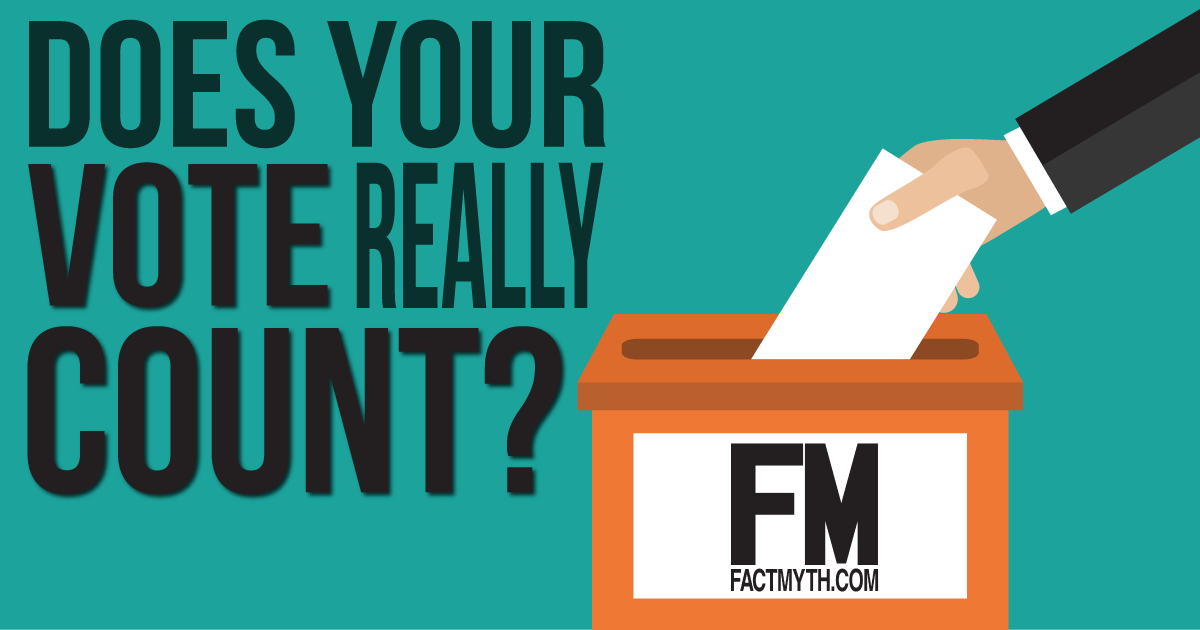When many think of voting they think of casting their ballot for President/Vice President, but there is more to being a voter than that. There are important races to vote on every year in the United States in many states. Make sure you are informed on your voting rights and don’t forget to take part in the democratic process.
There are Elections Each Year in the United States fact

There is a Federal Election Every Other Year in the U.S., and Local Elections Happen Every Year in Many States
Most people know to vote for President every four years in the US. However, there is a lot more to vote on than that each year. In every state there are federal elections every two years. In some states there are also local off-year elections. Plus there are primaries before the actual elections that decide who gets on the ballot. Plus there are special elections sometimes when there are vacant seats!
That means in some states you’ll need to cast more than one ballot each year (once for the primary and once for the actual election).
Further, on every ballot there is likely to be many races to vote on and in some states even legislation to vote on. So not only are you casting more than one ballot, you are casting your ballot for more than one race and/or measure!
That means there is a lot more to voting than just casting your vote for President every four years (i.e. it is a myth that you only vote once every four years for the single race of President/Vice President and it is a fact that there are many elections that take place in the US each year).
With that covered, while some claim “your vote doesn’t matter,” 1. that is not true, and 2. to the extent it is true, it is really only a snarky quip that applies to specific races in specific regions that lean heavily toward one party.
In other words, there are a ton of races to vote on regardless of what state you live in, and in some states there are actually important races and measures to vote on every year!
As of writing this article we are heading into the midterm elections which are always held 2 years after a Presidential election.
The tricky thing is the specifics on when, where, and how to vote can differ wildly by state (some things are consistent like dates for the Presidential and mid-term elections, but other things are very different).
To avoid confusion, a good resource to use is Vote.Org. Check out that link and make sure you understand when your primaries and elections are each year!
NOTE: Check out the table below from Wikipedia for a quick look at which elections happen each year.
| Year | 2016 | 2017 | 2018 | 2019 | 2020 |
|---|---|---|---|---|---|
| Type | Presidential | Off-yeara | Midterm | Off-yearb | Presidential |
| President | Yes | No | Yes | ||
| Senate | Class III (34 seats) | No | Class I (33 seats) | No | Class II (33 seats) |
| House | All 435 seats[2] | No | All 435 seats[3] | No | All 435 seats[2] |
| Gubernatorial | 11 states, 2 territories AS, DE, IN, MO, MT, NH, NC, ND, PR, UT,VT, WA, WV |
2 states NJ, VA |
36 states, 3 territories[4] AL, AK, AZ, AR, CA, CO, CT, FL, GA, GU,HI, ID, IL, IA, KS, ME, MP, MD, MA, MI, MN,NE, NV, NH, NM, NY, OH, OK, OR, PA, RI,SC, SD, TN, TX, VI, VT, WI, WY |
3 states KY, LA, MS |
11 states, 2 territories AS, DE, IN, MO, MT, NH, NC, ND, PR, UT,VT, WA, WV |
| Other state and local offices | Varies | ||||
- 1 This table does not include special elections, which may be held to fill political offices that have become vacant between the regularly scheduled elections.
- 2 As well as all six non-voting delegates of the U.S. House.
- 3 As well as five non-voting delegates of the U.S. House. The Resident Commissioner of Puerto Rico instead serves a four-year term that coincides with the presidential term.
- 4 The Governors of New Hampshire and Vermont are each elected to two-year terms. The other 48 state governors serve four-year terms.
